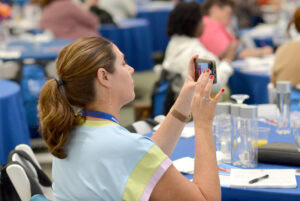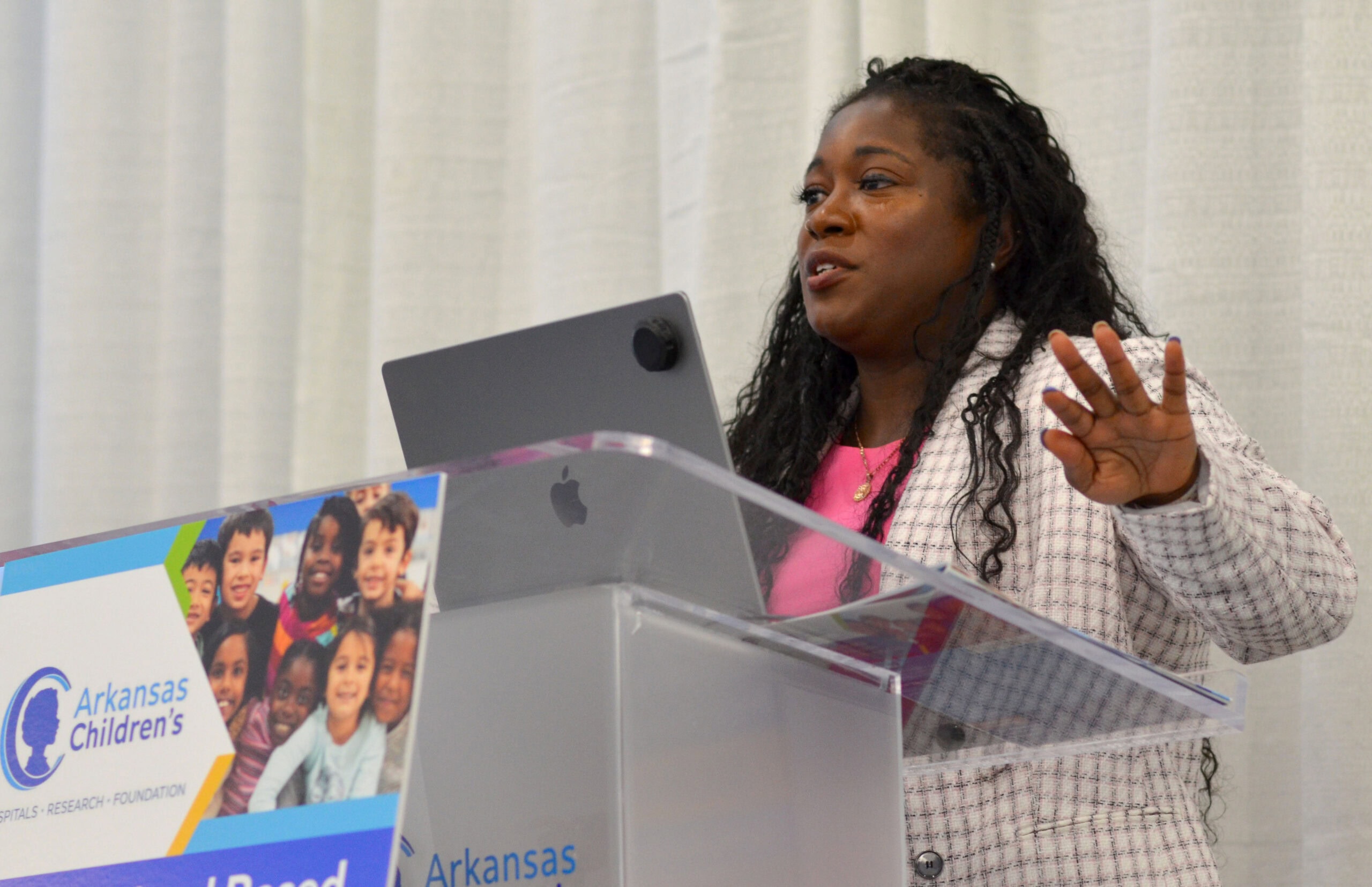Symposium Promotes Mental Health Awareness for Arkansas Youth
| Educators from throughout the state attended the inaugural Arkansas Mental Health Access for Pediatric Primary Care (ARMAPP) School-Based Mental Health Symposium.
The free event gave school-based professionals that work with students in grades K-12 an opportunity to network, take part in activities and receive info on how mental health issues can impede a child’s ability to learn.
Funded by a Health Resources and Services Administration grant, ARMAPP is a collaborative venture between the University of Arkansas for Medical Sciences (UAMS) and Arkansas Children’s Hospital. It consists of health care professionals who present consultations on mental health conditions for pediatric primary care providers and school-based mental health professionals.
The entity has a goal to expand capacity for mental and behavioral health among primary care providers and school-based health professionals. Team members realized that the best way to build connections in rural areas was through partnering with school districts.
“By focusing mostly on family physicians and pediatricians, ARMAPP would have difficulty fully getting into the rural parts of Arkansas,” said Chris Smith, M.D., UAMS College of Medicine professor of pediatrics, co-director of ARMAPP and lead investigator of the grant. “We want to take our education and consultations into school-based situations. As part of our plan, we decided to host a symposium for school-based professionals.”
The event served as a celebratory and informative kickoff to the group entering the next stage of its progression, according to program manager Valandra German, Dr.PH., MPH.
“We wanted to introduce the program to educators, and we wanted to provide info on issues children are facing regarding mental health,” she said. “Children are the most important asset that we have in Arkansas.
“Among African American male children, suicide rates are up. We want to make sure our children are healthy. Mental health, mind, body, soul, spirit plays a big part in children being healthy.”
The symposium featured training on several topics that impact youth, including sexting, racism, substance abuse and behavioral de-escalation. More than 200 people registered for the symposium, and 45 of Arkansas’ 75 counties were represented.
Brittainy Erby, M.D., a psychiatrist at the Medical University of South Carolina headlined the conference. Her keynote address “Racism as Trauma,” discussed the various ways racism creeps into the education system. Erby presented parallels on how covert and overt racism, along with a lack of cultural awareness by educators and school-based professionals, can undermine a youth’s ability, and desire, to accomplish their goals. Erby’s address was well received, said German.
“Race discrimination can have an adverse effect on childhood experiences,” German said. “Focusing on racial trauma and how it effects people of color, and how to address it, and Dr. Erby providing resources that can help people was important. She wants people to become comfortable discussing racism and talking to their students about racism and creative inclusive environments.”

An attendee of the first-ever Arkansas Mental Health Access for Pediatric Primary Care School-Based Mental Health Symposium uses her cell phone to take a photo of one of the slides presented during the event.
Organizers wanted attendees to have candid discussions about Erby’s address, and any other topic at the symposium. For that reason, event organizers created a seating arrangement designed to spark conversation.
“Strategically, we did not allow people who knew one another to sit at the same table,” German said. “We tried to make it where networking, creating partnerships had to happen.”
Attendees received a free copy of the book, “The Unapologetic Guide to Black Mental Health.” Additionally, people who traveled to Little Rock from outside central Arkansas for the symposium received a $50 gift card.
Since the event concluded, there’s been an increase of inquiries and people registering for ARMAPP training sessions.
“More people are now aware of us,” German said. “We’ve had people sign up to receive consults from our psychologist and to also attend our monthly training sessions. There are now nearly 70 school-based providers scheduled to get ongoing training and the support services we offer.”
“People are eager to continue receiving training in the format we offered,” she said. “Therefore, we know they had a great time at the symposium. We discussed topics that are not too often focused on. We’ve received lots of comments on how this was not the traditional professional development.”
With ARMAPP, also led by Lori Graham, MSW, co-director, seeking to make an impact in the state’s rural communities, the symposium needed to be productive, fun and memorable. According to Smith, the feedback received suggests that the goal was accomplished.
“Looking at the graffiti boards we had, the comments people left were extremely positive,” he said. “I heard a lot of buzz about Dr. Erby’s address, and how we were willing to bring attention to racism and what we can all do for population groups that face hidden traumas. I believe people enjoyed the fun, the food, the fellowship and especially the information.”
“We wanted attendees to leave with a positive understanding that both UAMS and Arkansas Children’s Hospital care about Arkansans, especially the youth,” Smith said. “The people in attendance can go back to their district and encourage other people to enroll in ARMAPP for the purpose of education and consultation regarding youth mental health programming.”
